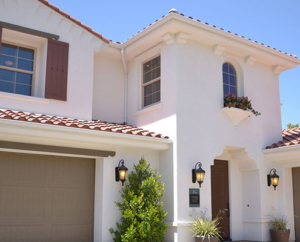How to Protect Your identity When Buying or Selling a Home
If you are in the process of buying or selling a home, at some point, you are going to have to disclose personal information when you go through the process. Because of this, a home buyer, especially, is much more likely to become a victim of identity theft.

Here are some ways to protect your identity when buying or selling a new home:
Ask if Communication is Secure
One thing to do is to make sure your mortgage and real estate professionals are using secure electronic communications. If they can’t articulate their security, such as they use two step verification, etc, then they aren’t generally secure. Otherwise, you should drop documents off in person.
Ask How Personal Info is Handled
Another thing to do is ask your lender how they will handle your personal info after the loan is complete. Are documents able to be stored securely? Will they be shredded when no longer needed?
Ask About Security Policies
You should also ask about the security policies of your lender and/or real estate professional. If they don’t have a security policy, they aren’t secure.
Get a Referral
Ask people you know for referrals for mortgage and real estate professionals. Verify that their licenses are current. Do business with those who others know, like and trust.
Choose a Real Estate Team That You Trust
Buying a new home takes a full team on both the sides of the buyer and the seller. So, you have to make sure that you trust them and that all of their credentials are up to date. You should also do your best to read reviews online.
Be Aware of Frauds
Fraudsters are always out there, and they take advantage of people looking to buy a home. For example, according to investigators, a California woman would offer to buy a home on behalf of the buyer because the buyer was under funded or an illegal immigrant. After the buyer provided the deposit, she would never be heard from again.So keep your eyes open as you go through the process.
Recognize Money Wire Scams
When looking at the home buying process, a report by the FBI’s Internet Crime Complaint Center said email fraud involving real estate transactions rose 1,110 percent in the years 2015 to 2017 and fraud dollars lost rose almost 2,200 percent.
Nearly 10,000 people reported being victims of this kind of fraud in When looking at the home buying process, a report by the FBI’s Internet Crime Complaint Center said email fraud involving real estate transactions rose 1,110 percent in the years 2015 to 2017 and fraud dollars lost rose almost 2,200 percent.
Nearly 10,000 people reported being victims of this kind of fraud in 2017 with losses over $56 million, the FBI report said. Real estate is only now tightening its belt and fighting back., the FBI report said. Real estate is only now tightening its belt and fighting back. The moment a wire transfer is requested via email, tell your agent or broker you want to meet them at the office to discuss. End of story.
Be Cautious on the Internet
During this process, you will be filling out a lot of forms and giving out a lot of your personal information. So, to help prevent any identity theft, you should only use a secure device on a secure network. You also have to make sure that you are using strong, varied passwords, and if you have to print out copies of documents, you should hide any account numbers or Social Security numbers.
Use Credit Monitoring or ID Theft Protection
When making a large purchase like a new home, you should make sure to have real time credit monitoring and identity theft protection.
Freeze or Lock Your Credit Until Making an Offer
You also might want to consider freezing or locking your credit until you are required to have your credit checked. Both options prevent a creditor from accessing your credit report, which stops a criminal from opening a new account.
Credit locks are available from consumer credit bureaus for a small fee, and you can lock or unlock your credit whenever you want. A credit freeze is free but slightly cumbersome. Go free and learn it.
Get a Copy of Your Credit Report
It’s also a good idea to get a credit report if you are going to finance a home. Checking this report will give you a good idea of what you can afford each month, and it will allow you to see if there are any mistakes or unusual behavior on the reports.
Stay Safe During the Closing Process Finally, remember that fraudsters are always out there, especially when people are using large sums of money. The Federal Trade Commission estimates that people lost about $1.48 billion to fraud last year, alone. So, it’s imperative that you keep yourself safe by avoiding things like phishing schemes, and if something sounds too good to be true, it probably is.
Robert Siciliano personal security and identity theft expert and speaker is the author of Identity Theft Privacy: Security Protection and Fraud Prevention: Your Guide to Protecting Yourself from Identity Theft and Computer Fraud. See him knock’em dead in this Security Awareness Training video.



 New Apartment
New Apartment Before Leaving
Before Leaving Burglars know that every “safe neighborhood” has a certain percentage of fools who think they’re immune to break-ins. And thieves would rather intrude upon a home with lots of nice things—and these homes are usually in “nice neighborhoods.” Hello?
Burglars know that every “safe neighborhood” has a certain percentage of fools who think they’re immune to break-ins. And thieves would rather intrude upon a home with lots of nice things—and these homes are usually in “nice neighborhoods.” Hello?


























